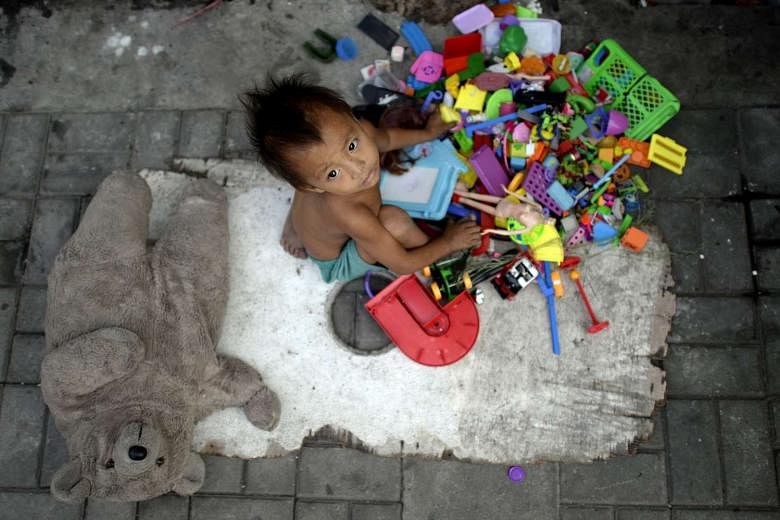LONDON • The richest 1 per cent of the global population now own more than the rest of the people combined, aid group Oxfam said yesterday, on the eve of the annual gathering of financial and political elites at the World Economic Forum in Davos.
"Runaway inequality has created a world where 62 people own as much wealth as the poorest half of the world's population - a figure that has fallen from 388 just five years ago," the anti-poverty agency said.
Significantly, the wealth gap is widening faster than anyone anticipated, with the 1 per cent overtaking the rest a year earlier than Oxfam predicted 12 months ago.
The wealth of the most affluent - 53 of them men - has risen by 44 per cent since 2010 to US$1.76 trillion (S$2.53 trillion), while the wealth of the poorest 3.5 billion on the planet fell 41 per cent - just over US$1 trillion.
Almost half the super-rich individuals are from the United States, 17 from Europe, and the rest from countries including China, Brazil, Mexico, Japan and Saudi Arabia.
"It is simply unacceptable that the poorest half of the world's population owns no more than a few dozen super-rich people who could fit onto one bus," said Ms Winnie Byanima, executive director of Oxfam International.
The report points to a "global spider's web" of tax havens that ensures wealth stays out of the reach of ordinary citizens and governments, citing a recent estimate that US$7.6 trillion of individual wealth - more than the combined economies of Germany and Britain - is currently held offshore.
The charity used the statistics to argue that growing inequality poses a threat to economic expansion and social cohesion. Those risks have already been noted in countries from the US to Spain, where voters are increasingly backing populist political candidates. It has also sown tensions on the streets of Latin America and the Middle East.
Oxfam said governments should take steps to reduce the polarisation, and politicians should agree on a global approach to ending the practice of using offshore accounts.
"Multinational companies and wealthy elites are playing by different rules to everyone else, refusing to pay the taxes that society needs to function. The fact that 188 of 201 leading companies have a presence in at least one tax haven shows it is time to act," Ms Byanima said.
Ensuring governments collect the taxes they are owed by companies and rich individuals will be vital if world leaders are to meet their goal to eliminate extreme poverty by 2030, one of 17 Sustainable Development Goals set last September, Oxfam said.
The number of people living in extreme poverty has fallen by 650 million since 1981, even though the global population grew by two billion in that time, according to the Organisation for Economic Cooperation and Development (OECD).
Much of this change has been because of the rise of China, which alone accounted for half a billion people moving out of extreme poverty. Most of the world's poorest no longer live in the poorest countries, but in middle-income countries like India, the OECD said in a recent report.
REUTERS, AGENCE FRANCE-PRESSE

